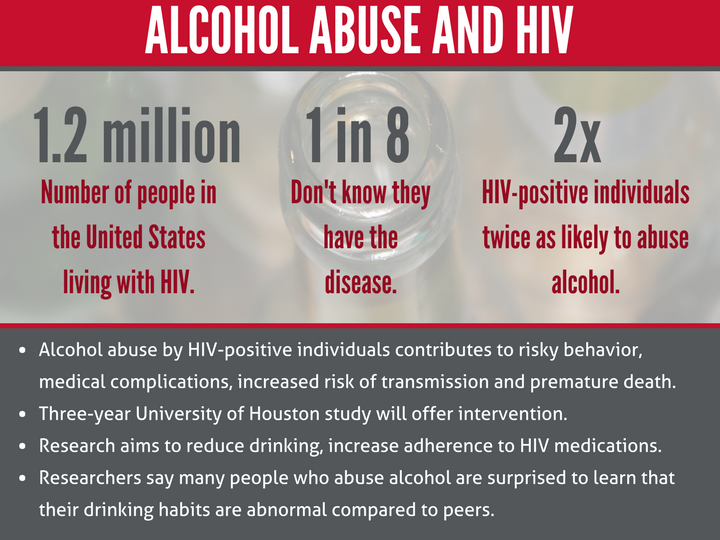
A team of University of Houston researchers from the Department of Psychology has been awarded a National Institutes of Health (NIH) grant to reduce HIV transmission and progression among hazardous alcohol users. Rates of alcohol abuse among HIV-positive individuals are approximately twice as high as the general population.
“This population is underserved and can be challenging to reach,” said Clayton Neighbors, professor of psychology and director of the Social Influences and Health Behaviors Lab at UH. “However, it’s important that we do, because the negative consequences can be severe.”
Neighbors is a co-principal investigator along with Michael Zvolensky, Hugh Roy and Lillie Cranz Cullen Distinguished professor; and Carla Sharp, professor and director of clinical training in the UH Department of Psychology.
Hazardous alcohol use contributes to problems with HIV medication adherence, risky sexual behavior, psychological problems and physical complications that can lead to increased risk of transmission and premature death.
The brief computer-based personalized feedback intervention will be administered at Houston-area HIV clinics. The three-year study, funded by a $230,784 grant from the National Institute on Alcohol Abuse and Alcoholism (NIAAA), will recruit 150 participants.
“This intervention can help offset problems associated with hazardous drinking among a high-risk group. We hope to reduce problem drinking and increase medication adherence for highly antiviral medications,” said Zvolensky, director of the Anxiety and Health Research Laboratory/Substance Use Treatment Clinic at UH.
The team of UH researchers has performed similar interventions in other populations including college students, military members and even domestic violence perpetrators. They found that many people who abuse alcohol think others are drinking the same amount, but are surprised to learn that’s not necessarily the case.
“When people find out their drinking habits— that they think are normal— is not normal, it has a big impact on them. They often take a step back and review,” said Neighbors.
According to the Centers for Disease Control and Prevention (CDC), more than 1.2 million people in the United States are living with HIV, and one in eight don’t even know they have it.